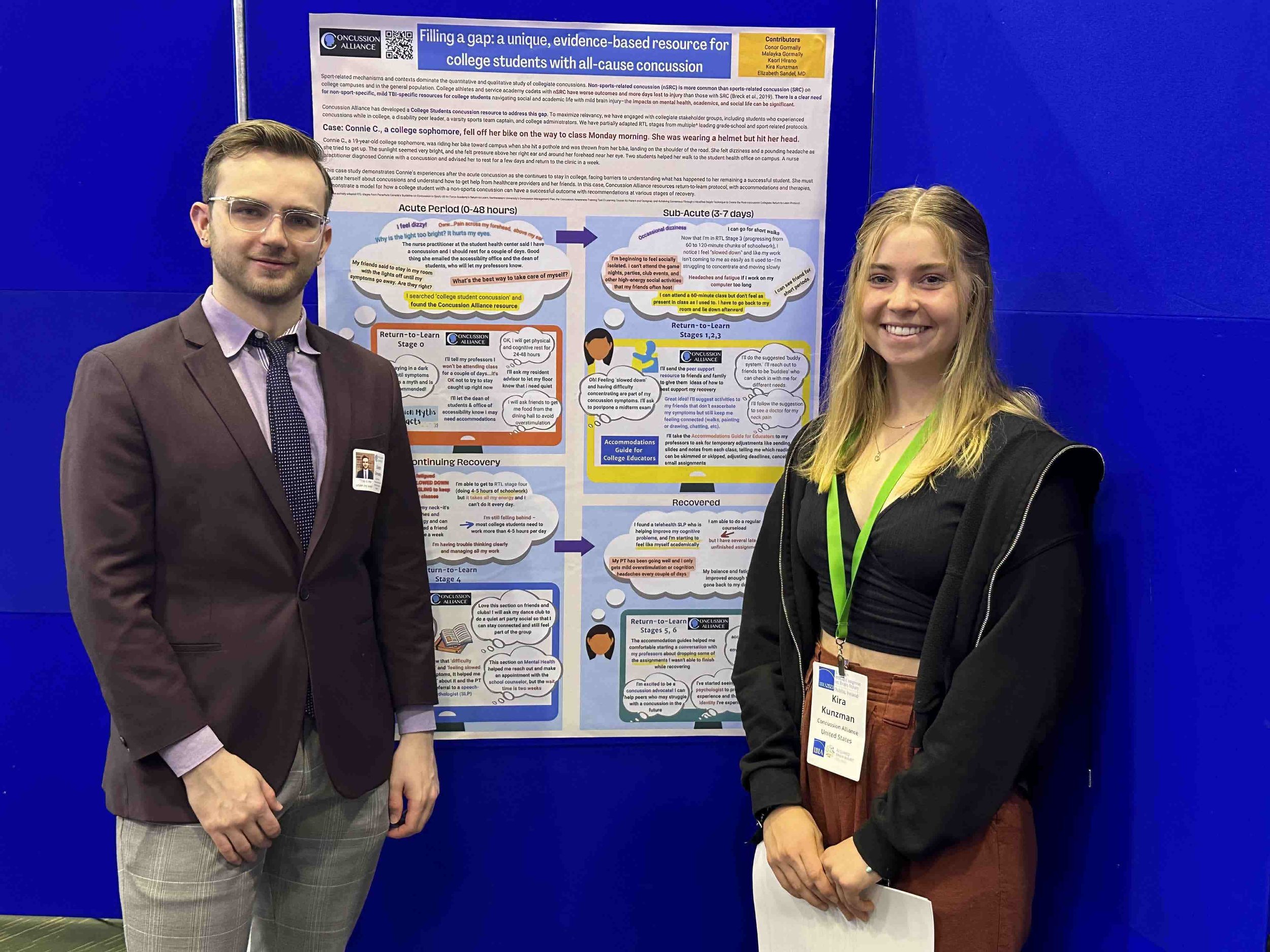‘College Students’ Resources Get Coverage In Carleton College News
By Conor Gormally, Concussion Alliance Co-founder, CEO, and Internship Director
This past spring, I had the opportunity to talk to Erica Helgerud, Carleton College’s News and Social Media Manager, about Concussion Alliance’s work and our impact on campus and among students at Carleton College. The article, Changing the Culture: How Carls are Conquering Concussions, was published on September 1, 2023, on the Carleton News website.
I was thrilled to be joined in the interview by Summer 2022 Interns Kira Kunzman and Kaori Hirano, who talked about their experience working with Concussion Alliance.
The article also covers our presentation of a poster about our groundbreaking resource for College Students at the 14th World Congress on Brain Injury in Dublin last March. Kira and Kaori, mentored by Concussion Alliance Leadership Team Member Dr. Elizabeth Sandel, created our Populations resource page on College Students as part of their internship in 2022. We invited Kira and Kaori to coauthor an abstract with me (Conor Gormally), Malayka Gormally, and Dr. Sandel to submit to the World Congress. With help from a major donor associated with Carleton, we were able to bring Kira with us to Dublin to help present the poster (Kaori was starting a study abroad program during the conference and so wasn’t able to attend).
You can see the poster in our blog post, which includes the introductory text of the abstract as well as the innovative imagery created by the team for the poster.
Kira and Kaori also talk about the impact of the internship on their career interests, their understanding of concussions, and on how they see the world. We highly recommend reading the article; we’ve included the text below, but you can also read it on the Carleton News website.
From Carleton News:
Conor Gormally ’21 got their world turned upside down after they arrived at Carleton as a Class of 2020 first year in 2016. They got a concussion while playing a game of pick-up Frisbee during New Student Week and ended up taking medical leave after just one week of fall term. After a difficult winter term back at Carleton, they had to take leave again for the spring, meaning they had to delay their education to fully recover.
Gormally, who was simply a Frisbee enthusiast, realized during his road to recovery that for college students, almost all concussion education is aimed toward high-level varsity athletes. After learning that concussion research is also mostly conducted with college athletes—such as the National Collegiate Athletics Association (NCAA) and the U.S. Department of Defense’s joint CARE Consortium, which studies athletes and military cadets—he wasn’t surprised, but he knew that meant there was a gap to be filled, and he decided he could help fill it.
“The majority of concussions are actually motor vehicle accidents and falls, particularly in younger children and older adults,” Gormally said, “but even on college campuses, the majority of concussions aren’t happening during sports––even among student-athletes. However, the majority of resources and funding and attention are directed towards sports-related concussions, so I wanted to create something that was primarily directed at concussion as a non-sport-specific issue.”
To continue reading this article, go to Changing the Culture: How Carls are Conquering Concussions on the Carleton News website.


